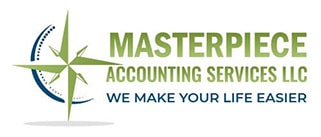While we all helplessly watch the war in Ukraine, we are also seeing the toll it’s extracting on our economy… and small businesses. Oil prices are skyrocketing and supply chain disruptions are becoming regular fare.
The shock of the last two years hasn’t really worn off and new challenges are mounting as war affects the globe.
And the greatest concern among small business owners right now? Inflation and how it is affecting their business. Most are raising prices, some are reducing staff, some are taking out loans to keep their head above water.
So, even though we’re knee-deep in end-of-quarter matters … I want to assure you that we are here for you as you face the effects of inflation in your business: 914-752-3632
With inflation on your brain, that ultimately means facing some realities with your business’s financials, including debt. And that’s what I want to talk about today… how is that business debt different from personal debt?
Let’s jump in.
Pointers From Masterpiece Accounting Services For Handling Business Debt
“Creditors have better memories than debtors.” – Benjamin Franklin
Both individuals and companies routinely run up bills they can’t immediately pay off – or don’t even plan to pay off … welcome to financing.
But personal debt and business debt are two different things. If mishandled, one can keep you from buying that car or appliance, for a while anyway. The other can put you out of business.
Our series on personal versus business financial management continues here with a look at debt, including the similarities and differences between the business and the personal kind – and pointers on how to handle business debt.
There’s a lot in a name
Getting into what each term means gives a good idea of how you think differently about these two types of debt.
Personal debt: This is when you’re legally responsible as an individual, though generally, it can also be debt you run up with someone else like your spouse – think mortgage, student loan, personal credit card, or car payment. This kind of debt usually improves your non-work with something expensive or worth the cost.
Business debt: This is taken on by a company (let’s say yours). The goal is also usually improvement, maybe property or a piece of big equipment. You, the owner or director, as an authorized person in the company generally can incur this debt in the name of the company. Generally, you can only be personally held liable for the company’s debt if you signed a personal guarantee or incurred the debt knowing that the company was insolvent.
(Owing business taxes doesn’t always work this way. Check with us.)
Alike in some ways
There are similarities between the two. Both types of debt can be secured or unsecured, for instance. The first involves collateral and the second relies on your credit history and the likelihood that the lender will get their money back.
That “getting the money back” tends to be the challenge with loans – and again, similar problems can make both personal and business debt a lot worse.
Bad money decisions can happen over a kitchen table or behind an office desk.
A down economy can cause both jobs and customers to dry up. Grocery stores and your suppliers both raise prices to keep up with inflation. And everybody needs gasoline, which is climbing steeply up.
By the same token, realistic budgeting is an excellent step when trying to avoid debt in your personal life or in your company. Ditto such other tactics as debt consolidation, refinancing, or negotiation.
But the similarities between these types of debt have limits.
Never mix, never worry
Did you know that about half the small businesses in the U.S. are home-based? Small wonder that too many people muddle strategies and solutions for the two kinds of debt.
Using your personal finances to fund your business can be tempting and convenient. But mixing the two can cripple your chances at future commercial loans, not to mention potentially creating tax troubles when you try to claim business expense deductions.
Take the example of using personal credit cards and home equity loans to fund a business. Far better you transfer your personal credit card balance to a clearly designated business credit card (same deal with auto loans and real estate). The protection isn’t 100% – you’ll still probably have to sign a personal guarantee for the debt on the card – but it is a way to keep business and personal debt more distinct.
If you’re a sole proprietor, do yourself a favor and look into becoming a limited liability company (LLC), which can offer you some protection from the fallout of debt.
Another tip: Did the purchase or transaction involve an Employer Identification Number, or “EIN”? If not, you may well find yourself with personal debt.
Your business options to handle debt include moves not always as available to those who are in a money hole on the personal front. Contracts can be canceled in business to prevent further debt, for instance, and your small business has way more options than an individual does to increase income and cut overhead.
And now the stop at the end of the debt road that nobody wants to hit: bankruptcy. Bankruptcy, in general, dropped last year, according to filings, but it’s still a danger. All we’ll get into here is that one huge general difference between personal and business bankruptcies is that businesses don’t have to pass a means test to qualify. At least that’s some kind of break.
Next in our series: Business versus personal budgeting. Stay tuned.
And know that we can help you examine debt-management strategies for your business, including keeping records to verify that you are a business. Grab a time here:
On your team,
Ibanessa Hogan
(914) 752-3632
Masterpiece Accounting Services

